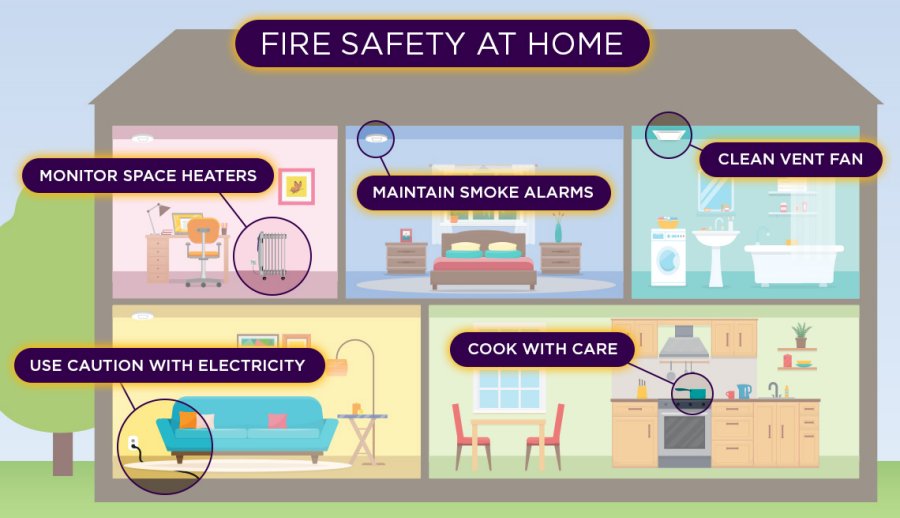
According to the National Fire Protection Association (NFPA), a fire department is dispatched to a fire every 24 seconds. A fire can become life-threatening in just about two minutes, and your house can engulf in flames completely under just five minutes. Many residential fires can be prevented with adequate preventative planning and measures.
Facts that makes fire so dangerous
Fire can get extremely hot – you are instructed to get down on the floor and crawl out of a burning space or structure. This is because fire temperature at ground level can easily exceed 100 degrees. It can easily cross 600 degrees at eye level too. Your lungs would be scorched if you breathe air that is 600 degrees in Fahrenheit.
- Fire burns quickly – as previously mentioned, small fires can quickly grow into large fires
- Eyesight can be damaged – smoke fills a space rapidly, damaging your eye sight in quick procession
- Fire is dangerous – inhaling the gases generated by burning materials will make you dizzy and toxic. Toxic gases are responsible for far more deaths than the fires themselves
The process of fire prevention
Fire prevention is the first step in protecting your home from a fire. And preparation is the first step in prevention. The plan you make must be understood by anyone who lives in your house. Then make sure you put the plan into action.
The best way to keep you and your family safe is to avoid a fire from beginning in the first place. Start by putting in place the following fire-prevention measures:
- Store flammable materials away from heat sources. Keep a portable heater at least 3 feet away from combustible objects like blankets, chairs, appliances, and other flammable items if you use one
- As soon as you see any frayed or damaged electrical wires or cables, repair or replace them. Avoid using whatever it is that has damaged wires as soon as possible so the wires can be fixed
- Never put too much weight on extension cords or wall outlets
- Never leave cigarettes, candles, fireplaces, or other smoking materials or fires unattended. In no situation do you smoke in bed
- Check every heating source or furnace on a regular basis to ensure that it is in good working order. At least once a year, HVAC systems should be “tuned up” by a specialist.
Always be prepared and have an effective fire safety plan in place for your home. Stuff can be replaced, people can’t. A little advance planning will help your family remain safe if a home fire occurs. The emergency response fire teams at 7012131140, are ready 24×7 to help with any fire emergency, from board up to clean-up, our experts can do it all. Call us for a free estimate. We will get you started on the road back to normal as quickly as possible.